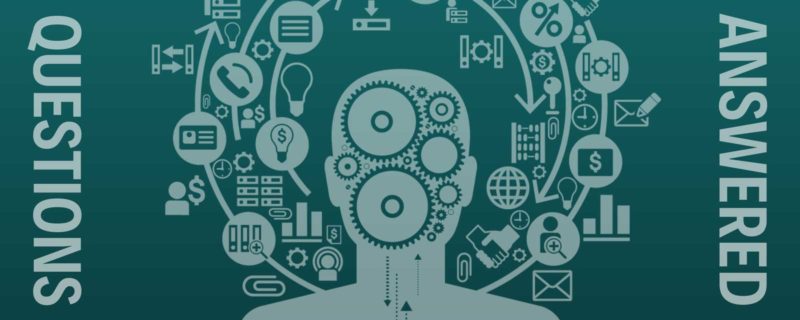
Lab Management Systems – A discussion on keeping your lab running at peak efficiency
Last week, we finished our Ask the Expert Discussion on How to Make Your Lab and Projects Run Smoothly. With so many projects and experiments running simultaneously in the lab, it can be difficult to keep track of who is doing what. In addition, keeping corresponding data well organized and easily accessible is key to successful publications, regulatory submissions and grant funding. These were the topics covered during our Ask the Expert session on making your lab and projects run smoothly.
The host of the session was Jonathan Gross, Founder and CTO, BioData. Jonathan founded BioData out of his passion to integrate technology and science. In addition to founding the company, Jonathan is also the Chief Technologist of the company. Jonathan holds a B.A. in Computer Science from the Interdisciplinary Center (IDC) Herzliya and a Masters degree in Biotechnology from the Hebrew University of Jerusalem. As a scientific researcher, Jonathan worked on enhancing the nutritional value of plants through molecular engineering and plastid transformation. Jonathan is also one of the founders of The BioExecutive Forum, a non-profit organization founded by and for executives from the Israeli Biomed industry.
Question topics included:
- Systems for grant requirement tracking
- Tracking project time
- Managing experiment results
- Ways to manage information from two labs
- Tracking data for IND submissions
I have selected a few of the submitted questions and answers to include below. For a full list of questions and answers, please see Ask the Expert – How to Make Your Lab and Projects Run Smoothly.
Question:
I have two labs both working simultaneously on projects to support our company’s IND submission. Right now we are using emails and google docs to track progress, but it is cumbersome and things have been lost. What would you recommend for sharing of timely information between two labs, pre-clin manufacturing, regulatory and upper management.
The Answer:
Thanks for this question. Sharing knowledge between remote labs is indeed a challenge, which we’re working to tackle at Labguru too. Your problem is even more complex as research labs and manufacturing labs tend to have different ‘language’ and require a different set of tools (we focus solely on research labs).
It sounds like what you’re looking for is a good Laboratory Information Management System (LIMS) that will allow for collaborative work and allow management to oversee the progress.
I cannot recommend a single system, because they are quite diverse and the decision would eventually depend on your accurate needs and budget. However, when choosing the right system, you should take into account also things like ease of installation, support and system maintenance that are sometimes overlooked but are critical for the long term success of implementing a new system. I would look also into systems that will support the next phase required to your IND submissions (see http://www.mdsol.com/for clinical trial management and systems to support your IP requirements.)
Question:
I’m using different systems in my lab to manage specimen, reagents, and files of results from experiments. What are the advantages for working with one system that does it all?
The Answer:
We had the same issue in the lab I worked at – protocols partly printed, others in a shared folder, results scattered on various computers. It was the responsibility of the students for managing it, but it was never easy – especially when you had to find a file (or a real sample) of someone that left the lab. This challenge was one of my main motivations for starting Biodata and working on Labguru – we literally solve this challenge – you can add all your results, files, spreadsheets, and easily connect them in a way logical for you and your team. The fact that Labguru is online with advanced searching capabilities makes it much easier to manage and find samples and files in your lab.
There is an obvious long term advantage – but keep in mind that it will only work if people in the lab invest and make the effort to update their work and keep the system organized and up-to-date.
Question:
Our lab just received a sizable grant and we need to find a way to track who is working on the project and time spent on this project for reporting purposes. How would you recommend that we get started setting up an efficient tracking system.
The Answer:
As different granting bodies require different types of reporting – I would choose a system based on two factors – the reports you’ll need to generate and long term aspects for this project – if this project is going to go beyond the scope of the current grant you might want to invest in proper research documentation tools (ELN / LIMS ) ** –
– if the agency requires only time tracking – and minimal milestone progress reports –
You can go with simple tools – such as basecamp, clarizen or even google docs.
** I don’t suggest starting to use a LIMS or an ELN just for reporting purposes – the investment is considerable – it should be a decision made by the lab leaders (PI / Lab Manager) based on how they want to see the lab run in the present and in the future – putting the digital infrastructure for proper research documentation, sample management, experiment documentation and lab logistics. The longer you postpone thinking about these issues the harder it will be to implement a solution for you lab.
Please visit this week’s Ask the Expert session –
“Monoclonal Antibody Production and the Culturing of Mouse Hybridoma Cells,”
hosted by Tim Fawcett, Ph.D. Director of the BioTechnical Institute of Maryland (BTI). Founder and Director, BioSciConcepts.
